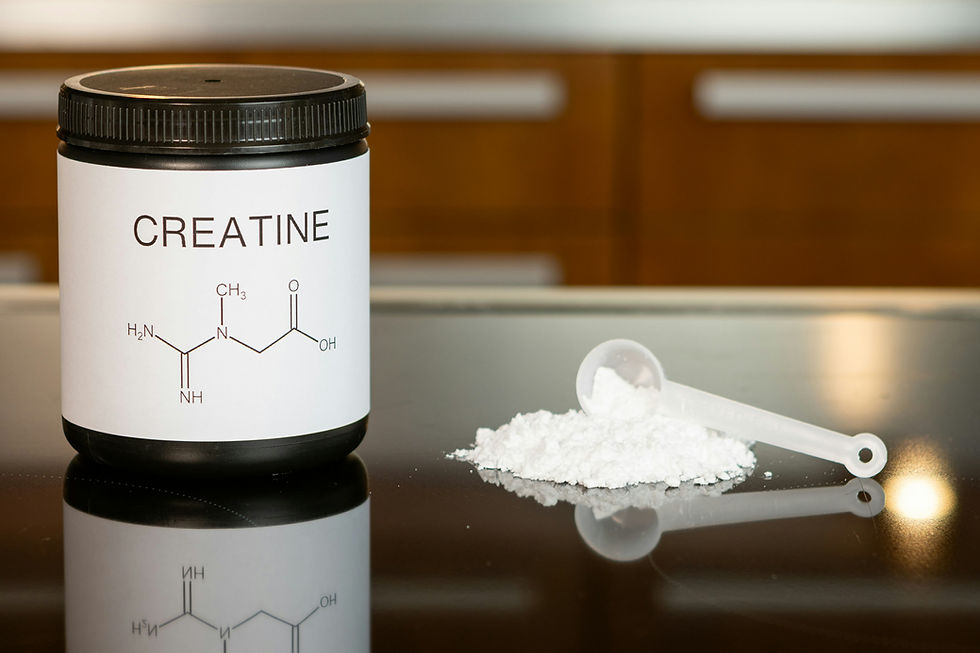Immuno-nutrition: diet or supplements?
- Amanda Heading
- Sep 28, 2020
- 3 min read
Updated: Oct 2, 2020
Immuno-nutrition – the adaptation of the immune system through diet – has long been debated, although most studies agree that nutrients gained from food are better than from supplementation. So, can you improve your immunity through diet and where do supplements fit into this?

Micronutrients - vitamins and minerals – have multiple and varied roles throughout the body, including every stage of the immune process. Vitamins A, C, D, E, B6, B12 and folate, as well as the minerals zinc, iron and selenium have gained attention in recent months as key nutrients for immune health, in terms of:
Maintenance of structural and functional barriers (skin, respiratory tract, gut lining) against foreign substance invasion
Optimal functioning of innate immune cells and adaptive immunity T-cells
Anti-oxidant action in reducing inflammation
Antibody production
Anti-microbial effects
Antigen responses
A number of these micronutrients have been granted European Union health claims due to their contribution to a healthy immune system1 so it’s an acceptable assumption that immunity is likely to be impaired when micronutrients are insufficient.2. Even in developed nations, nutrient inadequacies and deficiencies are widespread. Diet can and always should be the primary means of providing our nutrients, but storage of foodstuffs, transport, large-scale farming, reduced soil-quality and even cooking methods can all destroy them. Our own individual needs, depending on lifestyle and life-stage, means we may need more or less of these crucial nutrients.
Supplementation can therefore be beneficial to help support the diet when we’re under prolonged stress, during high-load exercise, during pregnancy or in our later years, as well as during times of higher risk of infection. These situations all demand an increased need for micronutrients, as they’re utilised more quickly by the body.
Because micronutrients work together, deficiencies don’t occur in isolation; therefore, a multi-vitamin and mineral complex can be useful as each nutrient is in ratio with each other and the dosage is within a safe, maintenance range for the majority of the population. So, it’s a safer way to supplement than with individual nutrients.
However, optimal immune status can require intakes above the recommended daily allowance (RDA)1. Dosage of vitamin C is largely dependent on an individual’s health status, and vitamin D on their current levels. Optimal levels of both vitamins have long been associated the reduced incidence of upper and lower respiratory infections (eg. the common cold and pneumonia). Vitamin C is a powerful anti-oxidant and has been shown to reduce the duration and severity of colds3, and also reduce the risk of infection in those under extreme physical stress. Vitamin D is also associated with mood regulation, known to interact with immune resilience.1.
And so, it might make sense to supplement your diet during the Winter months, when sunshine is limited, mood can be affected by reduced daylight and infections are more prevalent. Reducing any nutritional gaps in our diet with supplementation can support optimal immune function, which along with good quality sleep and managing stress levels, may help to reduce the risk of infections and ill health.
Please be aware however, that supplements can alter the effects of any medications you may be taking, so do check with you GP or nutritional therapist first in terms of what to take, when to take them with regards to your meds and the best form for absorption and utilisation, dependant on your individual needs.
References
1. Jovic, T.H., et al. Could Vitamins Help in the Fight Against COVID-19? Nutrients. 2020, 12: 2550. Available at: https://www.mdpi.com/2072-6643/12/9/2550.
2. Calder P.C., et al. Optimal Nutritional Status for a Well-Functioning Immune System Is an Important Factor to Protect against Viral Infections. Nutrients. 2020, 12(4):1181. doi: 10.3390/nu12041181.
3. Gombart AF, Pierre A, Maggini S. A Review of Micronutrients and the Immune System-Working in Harmony to Reduce the Risk of Infection. Nutrients. 2020, 12(1):236. doi:10.3390/nu12010236.



